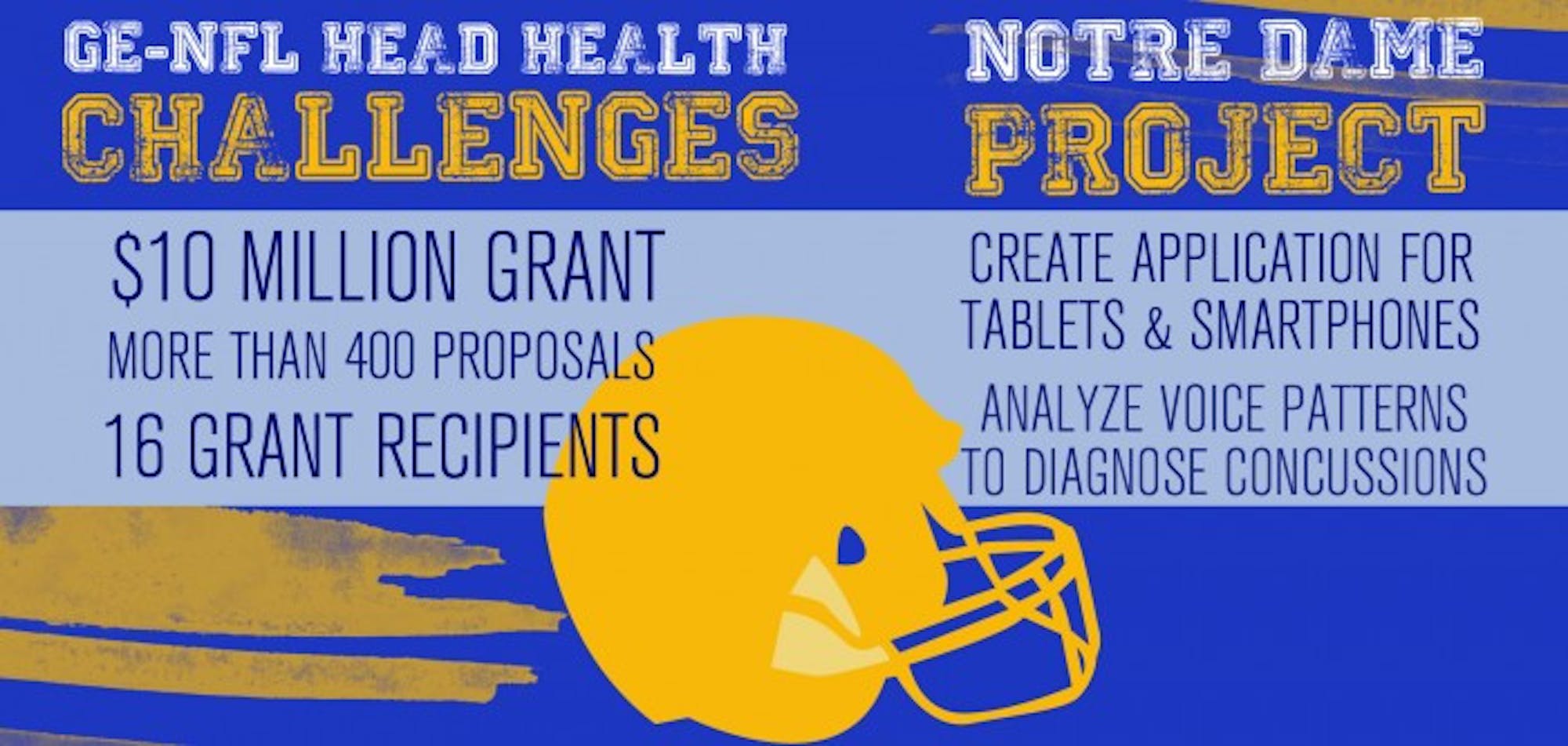The National Football League (NFL) and General Electric (GE) have teamed up to fund concussion-related research projects nationwide, and a Notre Dame research team is behind one of the 16 projects chosen so far.
Professor Christian Poellabauer said the 16 projects were chosen from a pool of more than 400 proposals by a panel of experts for the first of two GE-NFL Head Health Challenges, each of which will share in a $10 million grant. 
“It’s very exciting, because having support from two powerhouses, the NFL and GE, is incredibly helpful,” he said. “The opportunities that come from that — collaboration and expertise — can really make a difference.
The goal of the Notre Dame project is to create an application for tablets and smart phones that diagnoses concussions based on voice patterns, specifically vowel sounds, which can be altered by concussive impacts, Poellabauer said. He said being selected means his team will receive both the grant money and further assistance with their research.
“It’s not just funding, it’s more like a partnership,” he said.
Poellabauer said GE’s support in particular could be important in gaining approval from the U.S. Food and Drug Administration (FDA), given the corporation’s experience with the application process.
Poellabauer said the winning award was granted to research that either diagnoses concussions more quickly and accurately, develops new treatments for concussions or improves assessment of when athletes are ready to return to competition. He said his project is unique among the winning proposals, most of which involve brain imaging.
“Our voice procedure seems to be very different from the other proposals,” he said.
The funds will be used for two aspects of the team’s research, Poellabauer said. The first use will be proving the technology can work, which is called “proof of concept.”
Poellabauer said the main component of the proof of concept is data collection. He said the team is partnering with high schools in Indiana, Illinois, Wisconsin, Pennsylvania and Texas to test the system on student athletes.
Participants will provide a baseline recording before their respective competition season and then the schools’ athletic trainers will administer subsequent tests after practices and games, Poellabauer said. The recordings will all be analyzed and compared to the baseline, and the results verified against any diagnosed concussions among the participants.
Poellabauer said the overall data collection effort will involve more than 1,000 students and the researchers expect a minimum of 50 concussions to occur within that group.
The second use of the funding will be developing an algorithm so that the app is fully functional on the device without the wireless connection and cloud computing currently required, Poellabauer said.
“There’s some work involved in getting it all to work efficiently on tablets and smart phones,” he said.
The researchers are partnering with the software company Contect Inc. to eventually bring the application to the public, Poellabauer said. Contect is focusing their efforts on commercialization while the researchers improve and test the effectiveness of the application.
“Our hope is by 2015 to have this in the market,” Poellabauer said.
Poellabauer said chemistry and biochemistry professor Mayland Chang was also doing research related to concussions and other traumatic brain injuries and would submit a proposal for the second GE-NFL Head Health Challenge.
“The NFL has committed to funding concussion research given the attention concussions have had the last few years,” he said.













